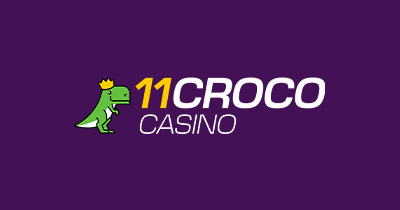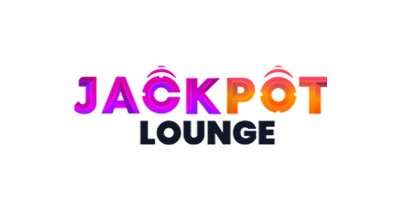What makes gambling licences crucial?
Just as Canadians derive peace of mind knowing that fellow motorists adhere to legal standards when behind the wheel, players using licensed gambling operators enjoy the benefits of regulations that substantially lower their chances of encountering unfavorable situations. Gambling licences are essential in ensuring a seamless online casino experience.
From our perspective, CanadaCasino is dedicated to promoting only those operators who possess valid licenses. online casino reviews on our websites.
What exactly are Gambling Commissions and what role do they play?
Gambling Commissions, commonly referred to as Gaming Authorities in Canada, are government entities responsible for establishing the standards that casinos must adhere to and for overseeing their compliance. Their primary obligation is to safeguard player interests and ensure fair and transparent gaming practices.
In Canada, each province manages its own Gaming Authority, which enforces regulations tailored to local residents while also aligning with overarching national gambling laws.
| Gaming Authorities | Provinces |
|---|---|
| Alcohol and Gaming Commission of Ontario | Ontario |
| British Columbia Lottery Corporation | British Columbia |
| Alberta Gaming and Liquor Commission | Alberta |
| Western Canada Lottery Corporation | Western Canada |
| Loto Quebec | Quebec |
| Atlantic Lottery Corporation | New Brunswick, Newfoundland and Labrador, Nova Scotia, and Prince Edward Island |
| Nova Scotia Gaming Corporation | Nova Scotia |
| Manitoba Liquor and Lotteries | Manitoba |
| Saskatchewan Indian Gaming Authority | Saskatchewan |
Gambling licences in Canada
Prior to the legislative changes implemented in 2021-2022, Canadian Gambling Licences were exclusively granted by governmental bodies across the ten provinces and certain First Nations territories. International operators are now able to apply for independent licenses from any or all Canadian Gaming Authorities through a detailed application procedure.
To gain a licence, applicants must meet stringent policy standards established by the authorities and consent to a framework of monitoring and enforcement aimed at protecting players and ensuring fair play.
Do international gambling licences adhere to Canadian standards?
Generally, yes. Additionally, licensing systems enacted by jurisdictions like the UK, Malta, Curacao, Gibraltar, and the Isle of Man have set a high standard for player protection and compliance, which several countries, including Canada, have recognized.
The UK Gambling Commission operates under the guidelines of the National Gambling Act of 2005, which has garnered global acceptance. Some of its primary objectives include:
- Avoiding any links between gambling and criminal activity.
- Ensuring that games remain fair and transparent.
- Protecting minors and vulnerable individuals from exploitation.
Consequently, the application process for licensing is rigorous and demands the following criteria:
- Verification of the identities of individuals or corporate shareholders applying for the licence to ensure accountability.
- Proof that the shareholders are reputable and trustworthy, including verification of clean criminal records.
- Evidence of the financial stability of the shareholders, including guarantees that they possess sufficient funds to withstand significant losses without jeopardizing operations.
- Demonstration of the necessary qualifications and experience to effectively manage a gambling enterprise.
How can Canadian players ascertain the licensing status of an online casino?
Reputable global online casino operators openly display their licensing information on their websites, reassuring customers that they comply with rigorous transparency demands set by their licensing authorities.
Are casinos licensed abroad permitted to operate in Canada?
The answer is both yes and no. The critical phrase here is \"In.\" Canadian players have the freedom to gamble at overseas licensed casinos whenever they like, however, the ongoing transformations in Canada’s online gambling landscape as provincial regulators move towards more open markets are still unfolding. Some provinces are progressing more swiftly and have established agreements with international casino operators that allow for direct access to their markets. For instance, Ontario, which represents the largest online gaming market in Canada, has yet to fully open its doors.
In 2014, revisions to the UK Gambling Act mandated that international operators must maintain part of their operations or equipment in Great Britain to retain their licenses. This requirement bolsters local job creation and economic growth, a model that provincial regulators may consider as part of their licensing criteria.
How to get a gambling licence?
Most international casino operators hold valid licences issued by global regulatory authorities such as Malta and Curacao among others. These licenses are highly regarded for their stringent standards regarding transparency and enforcement of fair play principles. Furthermore, these online casinos proudly display their credentials on their websites. Acquiring a licence necessitates adherence to strict financial, operational, and management standards, coupled with ongoing monitoring by the appropriate gambling commissions.
What are the requirements for casinos to obtain a licence in Canada?
With the introduction of recent legislation, Canadian Gaming Authorities have delineated their paths to licensing, which can differ by province. In Ontario, the AGCO has implemented a comprehensive seven-step approach:
- Ensure that games and vital gaming systems undergo certification by an Independent Testing Laboratory (ITL).
- Register with the AGCO
- Implement control measures to adhere to the AGCO Registrar's Internet Gaming Standards.
- Participate in training related to the Internet Gaming Notification Matrix.
- Set Up Regulatory Reporting in iAGCO
- Establish secure access to AGCO's Data and Information Communication Channels.
- Submit confirmations of technological compliance to the AGCO.
Is it possible for a casino to function without a licence?
Unfortunately, yes. Similar to the importance of seatbelts, a gambling licence is intended to offer the safest possible experience for players during their gaming adventures. However, the system is not infallible; unlicensed operators do exist and are typically flagged by international authorities for swift action against them.
It is vital to note that all the online casinos and the game software providers that we showcase are all properly licensed, adhering to standards set by the most reputable gaming authorities.
What are Blacklisted casinos?
Illegitimate casinos that employ questionable business practices and lack financial transparency occasionally emerge. Once rogue operators are identified, they are blacklisted by global authorities that are persistently working to eliminate illegal gambling sites.
The cooperative efforts of national gambling commissions leverage the resources of legitimate iGaming suppliers, operational support, and financial entities to effectively dismantle these operations. Additionally, commissions maintain publicly accessible databases of blacklisted casinos that players can verify before making any commitments.
Conclusion
Licensed to prosper. Canada’s strategic initiatives towards establishing a secure gambling environment for players and communities are being realized through effective partnerships between gaming authorities and leading global operators, enabling Canadians to access some of the world’s top best online casinos .
With rigorous oversight and compliance overseen by provincial regulators, leading online casinos can dedicate themselves to offering outstanding entertainment experiences using the latest innovations in the iGaming sector. This creates a mutually beneficial situation for Canadian players.





